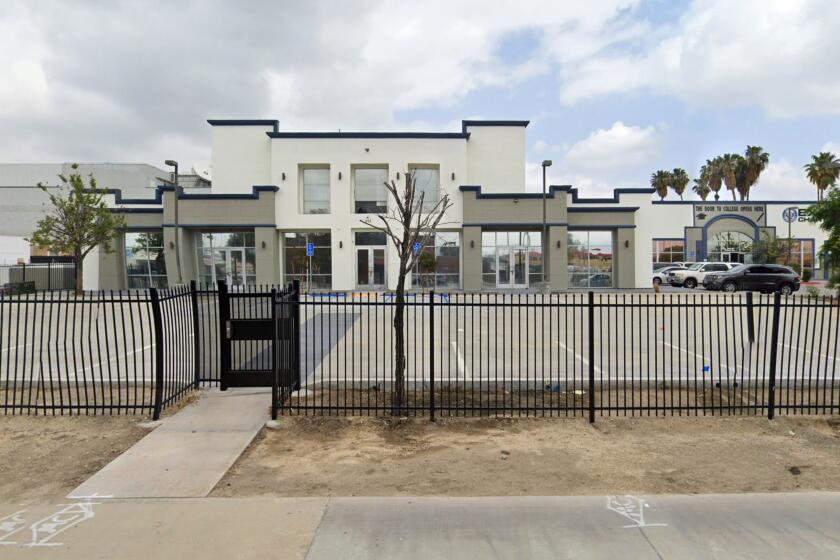Gov. Brown approves new plan to target blight in California

Gov. Jerry Brown speaks at the Capitol before signing the state budget on June 20, 2014.
Four years ago, Gov. Jerry Brown and the Legislature dissolved 400 redevelopment agencies throughout California that provided public subsidies to spur economic development and housing construction in blighted city cores.
Critics said the agencies were rife with waste and corruption, and noted that much of the property tax money they diverted as incentives to development came from schools and other essential government services.
On Tuesday, Brown took action to replace the old system with a more limited one that will target downtrodden areas with financial assistance.
“These important new measures enacted today will help boost economic development in some of our most disadvantaged and deserving communities,” the governor said in a statement.
Though some supporters of the bill praised its approval, opponents, including taxpayer advocates, said it would set off a “land grab” by local governments.
Brown signed a measure that would create entities similar to redevelopment agencies to fund affordable housing, hazardous waste cleanup and other projects in disadvantaged communities.
Assemblyman Luis Alejo (D-Watsonville), author of the bill, AB 2, said new Community Revitalization Investment Authorities would provide investment in poor areas throughout the state.
“If we do not fix our existing neighborhoods, then cities will sprawl outward, worsening costly problems like traffic and greenhouse gas emissions,” Alejo said in a statement. “Real smart growth starts with making the most of what you already have.”
The new system would have “significantly less” tax money to use and would be much more restricted to areas of low-income residents, said Dan Carrigg, legislative director of the League of California Cities, which supports the bill. “It puts another tool back in the toolbox, although one nowhere nearly as financially robust as the former redevelopment program,” he said.
Opponents, including the California Alliance to Protect Private Property Rights, a group of farmers, landowners and taxpayer advocates, said other programs set up after redevelopment should be given time to work.
They object to restoring to local agencies the ability to take private property through the power of eminent domain and to pay for it using property tax money, according to Marko Mlikotin, executive director of the group.
“I’m absolutely shocked,” he said of the governor’s approval of the bill. “It’s a major setback for private property rights in California.”
A companion bill signed by Brown, SB 107, will help local government cover the costs of dissolving redevelopment agencies, and allows municipalities to honor some contracts and loans approved before the Legislature’s 2011 vote to eliminate these agencies. It also allows local agencies to use all approved debt to provide low- and moderate-income housing.
In addition, that bill provides $23.75 million to the state Department of Forestry and Fire Protection to forgive debts owed by the newly formed cities of Jurupa Valley, Menifee and Wildomar for services rendered by Riverside County.
Twitter: @melmason, @mcgreevy99
ALSO:
L.A. to declare ‘state of emergency’ on homelessness, commit $100 million
California seeks to build one of world’s largest recycled water programs
Costco shopper, 78, punched in fight over free Nutella waffle sample, police say
More to Read
Start your day right
Sign up for Essential California for news, features and recommendations from the L.A. Times and beyond in your inbox six days a week.
You may occasionally receive promotional content from the Los Angeles Times.








